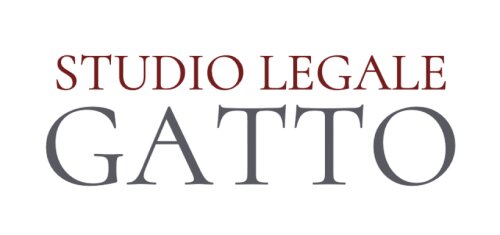Best Arrests & Searches Lawyers in Milan
Share your needs with us, get contacted by law firms.
Free. Takes 2 min.
List of the best lawyers in Milan, Italy
About Arrests & Searches Law in Milan, Italy
In Milan, as with the rest of Italy, the law regarding arrests and searches is heavily guided by the Italian Constitution. An individual may be arrested if they are caught in the act of committing a crime, if there is sufficient evidence supporting their guilt, or if they are likely to tamper with evidence. Notably, the Italian legal system upholds the right to a fair trial and the presumption of innocence. Searches, meanwhile, can be conducted with probable cause under the supervision of a judicial authority or in urgent cases by the police.
Why You May Need a Lawyer
Having an attorney at your side can be crucial as arrest & search scenarios can quickly escalate into more serious legal situations if not handled properly. A legal professional can help you understand your rights during an arrest or a search, as well as ensure that your rights are not violated. If you have been arrested, a lawyer can provide advice and guidance on the subsequent legal proceedings. Similarly, if your property has been illegally searched, a lawyer can assist in challenging the admissibility of the evidence in court.
Local Laws Overview
Under Italian law, the authorities need a warrant issued by a judge to perform a search unless there is an urgent need to preserve evidence or prevent a crime. Any evidence obtained from an unlawful search can potentially be excluded from the court proceedings. Furthermore, during an arrest, an individual has the right to remain silent and to consult with a lawyer. If someone is arrested, they must be brought before a judge within 48 hours. Within that timeframe, a preliminary investigation judge should either validate the arrest or order the person's release.
Frequently Asked Questions
Can the police arrest me without a warrant?
Yes, the police can arrest you without a warrant if they catch you in the act committing a crime or if they have evidence suggesting that you are likely to escape.
What should I do if I've been arrested?
If you've been arrested, you should ask to contact a lawyer and stay silent until you've had a chance to consult with your attorney.
Can the police search my house without consent?
Unless it's an urgent case to preserve evidence or prevent a crime, Italian law requires the authorities to obtain a judicial warrant before they can search your house.
Are there any exceptions to my right to be silent?
No, your right to remain silent is absolute and there are no circumstances under which you are required to speak to the police without a lawyer present.
What rights do I have while under arrest?
While under arrest you have the right to be informed of the reason for your arrest, the right to remain silent, the right to a lawyer, and the right to inform a family member or friend of your arrest.
What happens if I'm arrested while not in possession of my identification papers?
If you're arrested and you do not have your identification documents on you, you will typically be taken to a police station to have your identity verified.
What happens during a preliminary hearing?
The preliminary hearing is when the judge either validates your arrest or orders your release. If you've been detained without sufficient evidence or if your rights were violated during the arrest, your lawyer can advocate for your release at the hearing.
Can evidence from an illegal search be used against me?
Under Italian law, any evidence obtained from an illegal search can potentially be challenged and excluded from the proceedings.
Can the police search my vehicle without a warrant?
Similar to home searches, a warrant is typically necessary for a vehicle search unless there's an urgent case.
What should I do if I believe my rights have been violated during an arrest or search?
If you believe that your rights have been violated, retain all evidence of the incident, and contact a lawyer as soon as possible. It is within your rights to seek legal advice and to file any necessary complaints or lawsuits.
Additional Resources
You can turn to organizations such as the National Bar Council of Italy (CNF), the International Association of Penal Law (AIDP), or the Ministry of Justice for additional resources and information. These agencies can provide further legal guidance and may also provide access to legal aid if necessary.
Next Steps
If you need legal assistance related to an arrest or search, it’s crucial that you consult with a lawyer as soon as possible. During your meeting, explain the situation in detail, share any supporting documents or evidence, and ask about your best course of action. It's important to remember that you have rights under the law and seeking the guidance of a legal professional is a critical step to protecting those rights.
Lawzana helps you find the best lawyers and law firms in Milan through a curated and pre-screened list of qualified legal professionals. Our platform offers rankings and detailed profiles of attorneys and law firms, allowing you to compare based on practice areas, including Arrests & Searches, experience, and client feedback.
Each profile includes a description of the firm's areas of practice, client reviews, team members and partners, year of establishment, spoken languages, office locations, contact information, social media presence, and any published articles or resources. Most firms on our platform speak English and are experienced in both local and international legal matters.
Get a quote from top-rated law firms in Milan, Italy — quickly, securely, and without unnecessary hassle.
Disclaimer:
The information provided on this page is for general informational purposes only and does not constitute legal advice. While we strive to ensure the accuracy and relevance of the content, legal information may change over time, and interpretations of the law can vary. You should always consult with a qualified legal professional for advice specific to your situation.
We disclaim all liability for actions taken or not taken based on the content of this page. If you believe any information is incorrect or outdated, please contact us, and we will review and update it where appropriate.














